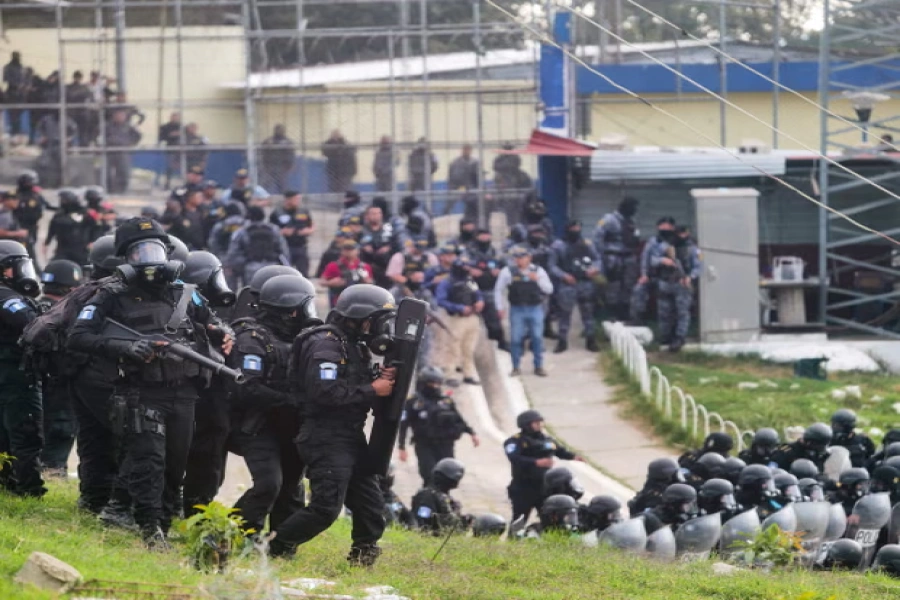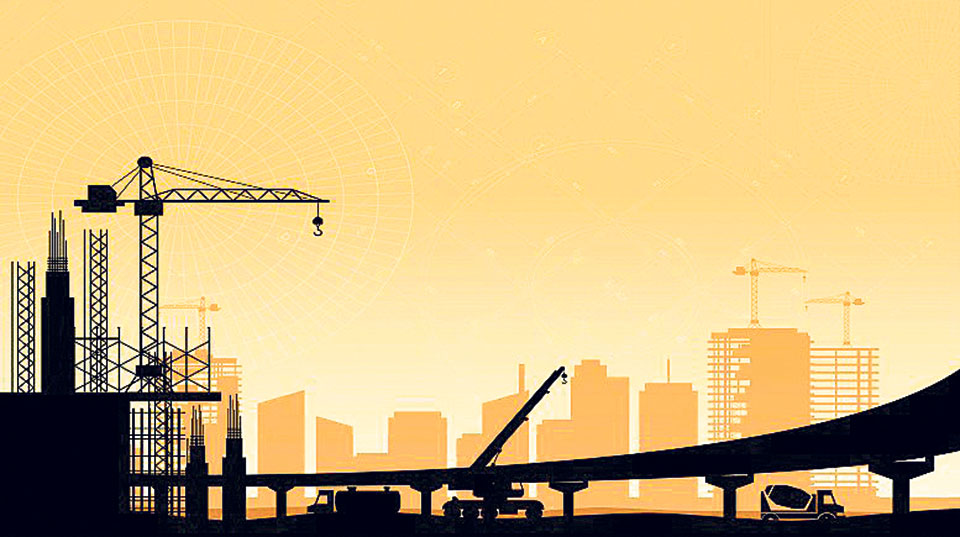Despite being geographically far apart, Nepal and Ireland share striking similarities, particularly as Ireland also experienced a violent conflict in its recent past. Since establishing diplomatic relations in 1999, the two countries have engaged in various interactions. While trade remains heavily in Ireland's favor, a significant number of Irish tourists, especially mountaineers, visit Nepal. Irish investment in Nepal, though modest, holds great potential in areas like digital technology, aviation and the pharmaceutical sector. In 2017, the Nepal-Ireland Parliamentary Friendship Group was established to foster parliamentary exchanges, development cooperation and mutual trust. Against this backdrop, Republica talked to Ireland's Non-Resident Ambassador to Nepal, Kevin Kelly, to discuss the current state of bilateral relations, opportunities to strengthen trade and investment, enhance people-to-people connections and collaborate on global issues such as climate change. Excerpts:
How would you describe the current state of our relations? What areas do you see as having the most potential for growth in the coming years?
Well, Ireland and Nepal are, in different ways, both small countries. Nepal is a bigger country than Ireland in terms of population, but both of us are shaped by the neighborhoods where we live. In Ireland, we have a population of about 5 million, and we're surrounded by big neighbors. We have the United States on one side across the water, and we have Britain on the other side. Nepal, of course, is situated in its own unique neighborhood. Over the years, we’ve maintained a very friendly relationship with Nepal, mostly through interactions at the United Nations in New York.
I know that we have supported Nepal, and Nepal has supported us at various points in terms of multilateral engagement. We have very friendly relations. My objective as Ambassador to Nepal, based in Delhi, is to expand that relationship. I am here this week and have had a series of meetings with government officials, non-governmental organizations, media, and civil society. My goal is to build people-to-people links between our two countries.
The number of Nepalese students going to Ireland for higher education has gone up lately. What initiatives are being taken to further facilitate this trend, and what benefits do you see for both countries?
We love to see Nepalese students coming to Ireland. We’ve been very successful in recent years in attracting students to our country. There are a couple of reasons for this. We are an English-speaking country, part of the European Union, and have full access to the United Kingdom through the Common Travel Area. Additionally, we have a very good record in employability—over 95% of students who study in Irish universities secure jobs after completing their studies.
Because of Ireland's strategic position, with many global companies such as Apple and Facebook based there, students gain valuable experience. We also have a good scheme for graduates. If you complete an undergraduate degree, you are guaranteed a one-year work permit. If you complete a postgraduate program, you can get a two-year work visa. I’m delighted that in the last year alone, we’ve had a threefold increase in the number of Nepalese students in Ireland—over 1,000 students now. This makes us very happy because Nepalese people and Irish people share similar outlooks on life and values, and they contribute greatly to our society.
Nepal reiterates its call for continuation of int'l support mea...

But it’s not just about attracting Nepalese students to Ireland, which is, of course, very important. It’s also about fostering relationships between universities in Nepal and Ireland. For instance, in 2023, we had an education fair in Kathmandu, where six top Irish universities participated. They aim not just to attract students but also to build meaningful partnerships. That’s an objective I’ll continue to work on as Ambassador.
In terms of trade, the volume remains relatively modest. What specific sectors hold the greatest promise for increased bilateral trade, and what steps are being taken to increase investment in Nepal?
You’re absolutely correct—the level of trade between our two countries is very small compared to, for instance, our trade with India. India is a much bigger country, and we’ve had a history of engagement there over the last 60 years. But I believe there are real opportunities between Ireland and Nepal that we could seize.
The first challenge is to raise awareness about Nepal in Ireland and Ireland in Nepal. In New Delhi and Mumbai, we have Irish state agencies like the IDA, which attract foreign direct investment into Ireland, and Enterprise Ireland, which helps Irish companies branch out and export internationally. Part of my job as Ambassador is to encourage these agencies to understand the opportunities Nepal offers.
Education is an obvious area of collaboration that we’ve already discussed, but there are other sectors too. Ireland has built significant expertise in areas like digital technology, aviation, and pharmaceuticals. We need to communicate to companies that Nepal is a good, safe place to invest and that the government provides a supportive environment for businesses.
Ireland has a history of supporting certain development projects in Nepal. Can you elaborate on Ireland's current development priorities in Nepal and how these initiatives are contributing to Nepal's progress?
Our contributions have been modest. In the past, we’ve supported different NGOs. I’d like to see more of this happening. Irish Aid, the name for our official development assistance program, has traditionally focused on Africa. However, Nepal is on the move and is set to graduate out of LDC status very soon.
Most of the projects we’ve supported in Nepal have been small-scale, community-based initiatives. For example, yesterday, I was delighted to visit a spinal injury rehabilitation project that Ireland has supported over the years. It’s inspiring to see the impact of these efforts, although much of the work is done by Nepalese themselves.
Within the European Union, Ireland has been a strong advocate for ensuring that Nepal receives support during its transition. The EU Global Gateway provides funds, and Ireland, as an active EU member, consistently emphasizes Nepal’s importance during policy discussions in Brussels.
You visited Nepal last year as well. What has surprised you most about Nepal during your time this year, and what messages would you like to convey to Irish people about Nepal and its people?
Every time I come to Nepal, I feel like I can breathe deeply. Living in Delhi, which is an amazing city but has high pollution levels, coming to Kathmandu and seeing the blue skies is refreshing. My key message to Irish people would be to come to Nepal and discover its beauty. There is so much to see here, and the people are incredibly warm and welcoming. Since my last visit, I’ve noticed a sense of hope among people following the formation of the new coalition government. Many believe it will deliver on development priorities. I hope Ireland can, in some small way, be a partner in Nepal’s journey. For example, this week, I met the Foreign Minister and the newly-appointed Foreign Secretary. It was an honor to be one of the first ambassadors to meet him in his official capacity. He understands Ireland well, having served as Ambassador to Ireland.
We discussed areas for collaboration, such as transitional justice. Ireland and Nepal have similar histories of conflict, and we’re still working on transitional justice over 26 years after our peace agreement. Sharing experiences could benefit both countries. Another area is diaspora engagement, where Ireland has significant expertise.
How do you see Ireland and Nepal collaborating more effectively on global issues such as climate change and achieving sustainable development goals?
Ireland and Nepal share many values and priorities at the United Nations. We’ve supported each other on numerous occasions, including Nepal’s representation in key global initiatives. Both countries have strong traditions in peacekeeping. Irish and Nepalese peacekeepers have served alongside each other in various missions. This is an area where we could deepen collaboration. Ireland has taken strong stances on other global issues like climate change and supporting Ukraine during Russia’s aggression as well as advocating for principled positions in conflicts like the one in Gaza. These are areas where we hope to align with Nepal’s views and collaborate.
As you look towards the future of Ireland-Nepal relations, what are your key aspirations and how do you envision the relationship evolving?
My vision is for this relationship to blossom. In the long term, I hope Ireland will establish an embassy in Kathmandu. My immediate focus is identifying concrete areas for collaboration, such as transitional justice and women, peace, and security. Nepal has had two strong national action plans for implementing UN Resolution 1325, and Ireland has experience in this area as well. This could be a fruitful area for collaboration. I also want to see more engagement between Irish and Nepalese politicians. Increasing awareness about each other’s countries is key to strengthening ties.
Finally, do you have any message for the Nepalese people?
You live in a wonderful place. I don’t have advice, but I want to express my admiration for the warmth and welcome I’ve received here. Ireland and Nepal share values of hospitality and friendliness, which are the foundation of our strong relationship.







































